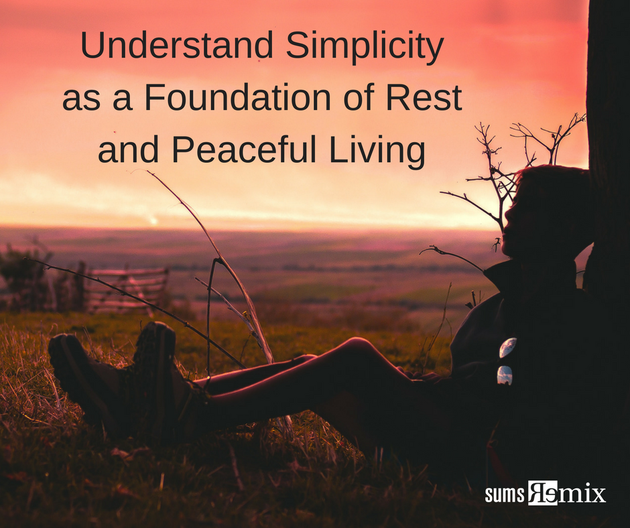We live in a society that demands instant gratification. We are always connected with devices that bring the world to our fingertips. We know more, more quickly, than at any time in human history.
And yet we seem to be satisfied less, just as quickly. Leaders are in a quest for more, but the obtaining more seems to result in just wanting more. It is a vicious cycle not easily broken.
Church pastors and staff are not immune to this; in fact, in some ways they may even be more susceptible. Congregational leaders and promising opportunities pull pastors in multiple directions at once, resulting in almost constant feelings of being overwhelmed by ministry, and by life.
The true, deepest need for leaders today is not to be more intelligent, or more gifted, or even more successful, but to be more connected, more fully to God.
The classical disciplines (meditation, prayer, fasting, study, simplicity, solitude, submission, service, confession, worship, guidance, and celebration) of the spiritual life call us to move beyond surface living into the depths of communion with a Holy and Living God.

THE QUICK SUMMARY – Living the Quaker Way, by Philip Gulley.
Philip Gulley invites us into a bracing encounter with the rich truths of Quakerism—a centuries-old spiritual tradition that provides not only a foundation of faith but also vision for making the world more just, loving, and peaceable by our presence.
In Living the Quaker Way, Gulley shows how Quaker values provide real solutions to many of our most pressing contemporary challenges. We not only come to a deeper appreciation of simplicity, peace, integrity, community, and equality, we see how embracing these virtues will radically transform us and our world.
A SIMPLE SOLUTION
We live in a world that often measures success by the accumulation of things. As the character Tyler Durden (played by Edward Norton) says in the movie Fight Club, “We buy things we don’t need with money we don’t have to impress people we don’t like.”
Even leaders in the Church are trapped in a maze of competition making spur of the moment decisions of programs or purchasing only to “fit in” or keep up with our friends. Did you REALLY need that new iPhone or were you trying to stay ahead of the youth minister?
The Christian discipline of simplicity is an inward decision toward focusing on the higher things of God that results in an outward lifestyle of impressing an audience of One.
While our journey toward a simpler life might well take different roads, it begins with the same step— the discernment between wants and needs.
Just as we cannot compel someone else to live simply, we cannot define simplicity for another, for our needs vary, as does our capacity for change. The life of simplicity is one of growing awareness, and each of us grows at different rates, in diverse ways. Not many decades had passed before early Quakers began judging one another’s commitment to simplicity, gauging another’s devotion to God by his or her clothing, home, and speech. They then enacted strict rules governing simplicity. It ended disastrously, creating a climate of judgment and self-righteousness that caused grave injury to our spiritual well-being.
Simplicity is not a universal fit. What is extravagance to one is necessity for another. My interpretation of wants and needs will not be yours, nor will yours be mine. The life of simplicity does not mean owning a bare minimum of goods. It is a commitment to live a liberated life, freed from constant distraction, devoted to our spiritual and emotional growth and the betterment of others. This can, and will, take many forms, depending upon our priorities, insights, needs, and life stages.
There are, the saying goes, two ways to be rich: one is to make more, the other is to want less. Most of us, when given that choice, have opted to make more. The idea of doing without, of denying ourselves the things we want, seems almost unfair. Advertisers tell us we “deserve” to drive a new car or “need” a larger television. It is easy to convince ourselves we merit these things, especially since we have worked so hard. But it is a vicious cycle, for we have worked much in order to buy the things we believe we need, often without stopping to consider whether they are essential.
Philip Gulley, Living the Quaker Way
A NEXT STEP
The pursuit of simplicity involves every facet of your life – spiritual, physical, emotional, relational, and vocational. The successful journey of a successful life will lead us from one area to the next.
Beginning with a focus on outward simplicity could be the best place to start. Richard Foster, author of one of the most compelling and readable expressions of Christian spirituality, suggests these 10 controlling principles for the outward expression of simplicity
Simplicity should be leading us on a journey in which each month, each experience, and each encounter is a learning opportunity for us. A deeper level of understanding about simplicity should reorient our lives so that possessions can be “genuinely enjoyed without destroying us” (Foster).
Gather your staff and personally force-rank the 10 principles above. Once each of you have ordered them from most challenging to least challenging, compare your lists. Now pray together and become accountable when you share similar challenges and pray for others who might be weak in area in which you are strong. Allow others to pray for you in your weakness.
Leo Tolstoy said, “Everybody thinks of changing humanity and nobody thinks of changing himself.” The needed change within us is God’s work, not ours. The change demands an inside job, and only God can work from the inside. Following the spiritual disciplines prepares your inner being for the change that only God can bring.
Excerpt taken from SUMS Remix 34-2, published February 2016.
Part of a weekly series on 27gen, entitled Wednesday Weekly ReaderRegular daily reading of books is an important part of my life. It even extends to my vocation, where as Vision Room Curator for Auxano I am responsible for publishing SUMS Remix, a biweekly book “summary” for church leaders. I’m going to peruse back issues of both SUMS and SUMS Remix and publish excerpts each Wednesday.
Advertisements Share this:




